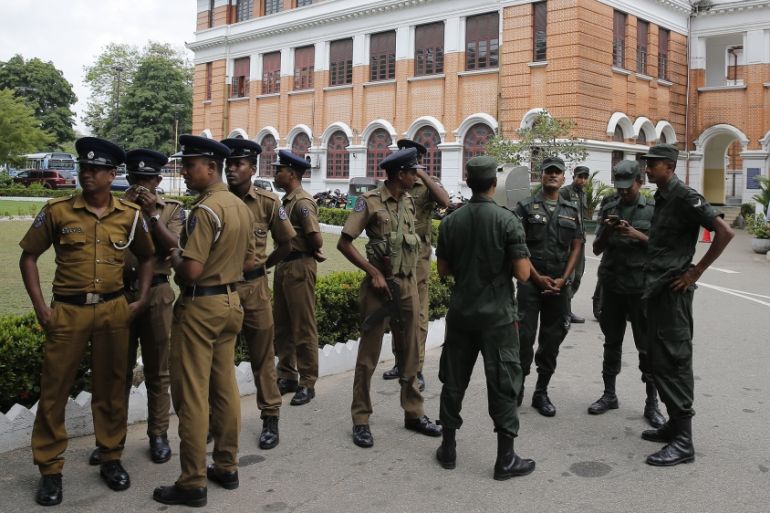Advocacy group calls on Sri Lanka to repeal ‘anti-terror’ law
The International Commission of Jurists said the proposed amendments to the Prevention of Terrorism Act were ‘woefully inadequate’.

The Sri Lankan government must repeal a controversial security act, the International Commission of Jurists (ICJ) said on Tuesday, adding that the proposed reforms by the right-wing government were “woefully inadequate”.
The Prevention of Terrorism Act (PTA) gives security forces sweeping powers to arrest and imprison suspects.
Keep reading
list of 4 itemsSri Lanka to pay $200m compensation for failed organic farm drive
Sri Lanka’s dilemma: Pay off debt or pay for milk, meds and gas
Sri Lanka prison chief gets death penalty for 2012 massacre
“The PTA as it stands allows for arbitrary and indefinite deprivation of liberty of any individual, group of individuals, association, organisation or body of persons within or outside Sri Lanka suspected of a wide range of ill-defined activities that are considered unlawful under this Act,” the ICJ, which advocates for human rights, said in a statement on Tuesday.
The advocacy body said the proposed amendments to the law, such as the reduction of detention period, and allowing a person detained for 12 months to seek bail, still allow for “persons to be deprived of liberty for an entire year without being given the opportunity to be heard before a court of law”.
The Government of #SriLanka is once again scrambling to do its bare minimum ahead of another @UN_HRC session, in an attempt to deflect focus away from its failing human rights record. https://t.co/sPHVxAIa2B
— icj (@ICJ_org) February 1, 2022
The UN Human Rights Council in September called for an “immediate moratorium” on the use of PTA, and that “a clear timeline be set for its comprehensive review or repeal”.
Critics warn the law is being used as a weapon targeting dissidents and minorities in the Buddhist-majority South Asian island nation.
The ICJ’s call for repeal comes amid calls by rights activists to release Sri Lankan human rights lawyer Hejaaz Hizbullah, who has been imprisoned by the government since April 2020 under the PTA.
Sri Lankan authorities said he had been imprisoned for links to the perpetrators of the 2019 Easter Bombings, which left more than 250 people dead and injured more than 500 – the Indian Ocean island nation’s worst attack since the end of civil war in 2009.
Rights group Amnesty International has deemed Hizbullah a prisoner of conscience and has urged the Sri Lankan government to drop the charges against him and release him “immediately and unconditionally”. Last month, a court in Sri Lanka denied Hizbullah bail.
The European Union and the UN human rights council have also expressed their concerns regarding the arrest and detention of Hizbullah.
Amid international pressure, the Sri Lankan president in July pardoned 16 men linked to the Tamil Tiger rebels imprisoned under the PTA.
The decision was a first for people linked to the Tigers since President Gotabaya Rajapaksa came to power in 2019.
The Tamil armed groups waged a decades-long war with the government until they were defeated in May 2009.